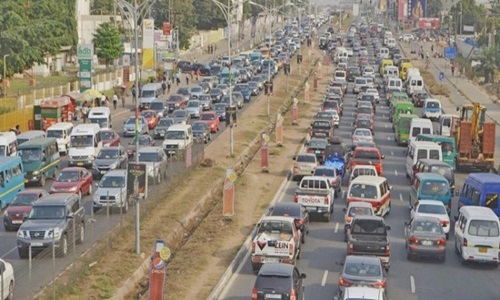Ghana’s traffic congestion, particularly in cities like Accra and Kumasi, is more than just an inconvenience; it’s a silent killer that affects the longevity of your vehicle. The constant stop-and-go movement, prolonged idling, and exposure to harsh road conditions take a toll on cars, leading to higher maintenance costs and reduced lifespan. Research from Kwame Nkrumah University of Science and Technology highlights that congestion in Kumasi significantly affects vehicle performance, with excessive travel delays leading to increased fuel consumption and wear on essential components.
The impact of traffic on vehicles
Long hours in traffic force engines to run inefficiently, leading to overheating and faster wear on components. A study on Accra’s road congestion by UCC found that vehicles stuck in gridlock experience up to 30% more engine stress, reducing their lifespan significantly. Research by the University of Cape Coast shows that poor traffic management and road conditions contribute to frequent breakdowns, forcing drivers to spend more on repairs.
Fuel consumption also skyrockets in congested areas. The research shows that drivers in Accra spend an average of 1.5 extra liters of fuel per hour in traffic, increasing operational costs. Frequent braking and acceleration further strain the brake system, causing pads and rotors to wear out faster than usual.
Ghana’s road conditions and their effect on cars
Many roads in Ghana suffer from potholes, uneven surfaces, and poor drainage, which accelerate vehicle damage. Suspension systems, tires, and undercarriages take a beating, leading to frequent repairs and replacements.
Spintex Road and Madina-Adenta Highway are notorious for heavy congestion, worsening engine strain. Meanwhile, Lapaz and Kaneshie roads are plagued by potholes and poor drainage, damaging tires and suspension systems. Studies from Kwame Nkrumah University of Science and Technology indicate that poor road infrastructure leads to increased vehicle maintenance costs, particularly for commercial drivers who rely on their vehicles for daily income.
The National Road Safety Authority (NRSA) has also raised concerns about the impact of congestion on vehicle longevity. According to NRSA, heavy traffic on major roads, such as the Accra-Tema Motorway, leads to prolonged engine strain and increased fuel consumption. The NRSA has urged authorities to improve traffic flow and enforce regulations that reduce unnecessary delays, as seen in their response to motorway gridlock incidents.
How drivers can protect their vehicles
Regular maintenance is essential for Ghanaian drivers, whether commercial or private. Frequent oil changes, brake inspections, and tire checks can extend a car’s lifespan. Experts recommend turning off the engine during long waits to reduce wear and tear.
Using quality fuel and lubricants helps engines run smoothly despite traffic stress. Research from the University of Cape Coast suggests that vehicles using low-grade fuel experience higher carbon buildup, leading to engine inefficiencies.
Conclusion: A long-term solution?
While drivers can take steps to protect their vehicles, Ghana’s traffic congestion remains a major challenge. Investing in better road infrastructure, improving traffic management, and promoting efficient public transport could help reduce the strain on cars and extend their longevity.
With Accra’s vehicle population growing rapidly, authorities must prioritize traffic decongestion strategies to prevent further damage to vehicles and reduce economic losses. Until then, Ghanaian drivers must remain vigilant in maintaining their cars to withstand the daily grind of urban traffic.




